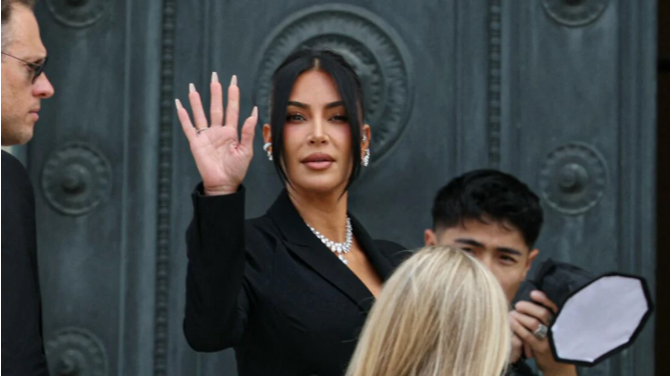Sophie Cunningham, a renowned athlete and public figure, has recently made headlines with a surprising announcement: he has declared he will not participate in celebrating Pride Month in June. In a candid interview, Cunningham expressed his belief that the growing emphasis on “woke” activism, which has come to define much of the current social climate, does not warrant recognition or celebration.
His statement has sparked widespread discussion across social media and media outlets, as it directly challenges the expanding influence of Pride Month observances and the broader push for social justice that has gained momentum in recent years. Cunningham argued that the term “woke” has become a catchphrase for virtue signaling, losing its original intent as a call for social awareness. He criticized what he perceives as a trend of individuals and corporations exploiting social justice movements for personal gain or public approval, rather than genuinely working towards systemic change.
In a society that has progressively moved toward greater inclusivity and support for marginalized groups, Pride Month—celebrated every June to honor the LGBTQ+ community and its ongoing fight for equality—has grown significantly in visibility and importance. From colorful parades to corporate sponsorships, the month has seen a remarkable transformation, with millions worldwide participating in events and showing solidarity.
However, Cunningham’s stance stands in stark contrast to this momentum, highlighting a divide between those who see the “woke” movement as a necessary step toward social progress and others who view it as ideological overreach. His public denouncement of Pride Month and his use of the term “woke” have stirred concern and confusion among fans, advocates, and advocacy groups.
In his statement, Cunningham argued that the term “woke” has been co-opted as a symbol of virtue, often disconnected from its original meaning—raising social consciousness. He expressed frustration with what he sees as a trend of corporations and individuals hijacking social justice causes to boost image or garner approval, rather than committing to real change.
“I’m all for equality and fairness,” Cunningham shared. “But what I can’t accept is how Pride Month, and movements like it, have been hijacked by corporations and people who don’t truly care about the causes. It’s become more about appearances and virtue signaling than actual progress. I refuse to pretend to celebrate something that’s become more about self-promotion than meaningful action.”
Many critics view Cunningham’s comments as a misguided critique of a movement that has played a vital role in advancing LGBTQ+ rights. Pride Month is not just a celebration of progress, but also a reflection on ongoing struggles—including discrimination, hate crimes, and mental health challenges—that disproportionately affect LGBTQ+ individuals worldwide. Critics argue that dismissing Pride as merely a commercialized event ignores the sacrifices and resilience of the community that fought for these rights.
“To dismiss Pride as just a corporate spectacle or overhyped event is to overlook the history and sacrifices behind it,” said one LGBTQ+ activist. “It’s a reminder of years of fighting for visibility, recognition, and rights that many take for granted today.”
Cunningham’s stance also taps into a larger debate about the role of social activism in modern society. “Woke culture,” which has gained prominence over the past decade, is viewed by some as a necessary push for justice and inclusivity. Others see it as an overzealous movement that stifles free speech and prioritizes symbolic gestures over tangible change.
The controversy comes at a time when many major companies—Nike, Apple, Coca-Cola—and sports leagues like the NFL and NBA actively participate in Pride Month campaigns, often accused of “rainbow capitalism”—capitalizing on LGBTQ+ support for profit without necessarily supporting systemic change. Cunningham voiced skepticism about such corporate involvement, criticizing the performative nature of some Pride celebrations.
“I’m tired of seeing companies post rainbow flags during June only to forget about LGBTQ+ issues the rest of the year,” he said. “I won’t be part of a spectacle that doesn’t reflect true support for the community.”
His decision to step back from Pride Month celebrations can be seen as a rejection of what he perceives as the commercialization of social justice. Many conservatives share this view, arguing that Pride Month has become overly politicized and is now more about promoting a particular ideology than celebrating human dignity and rights.
Yet, his stance raises questions about what authentic support for LGBTQ+ rights should look like. While Cunningham advocates for genuine activism, others believe that Pride Month—despite its commercialization—remains a crucial platform for raising awareness, increasing visibility, and fostering community solidarity.
In a time when public figures are scrutinized for their views on social issues, Cunningham’s decision to voice his opposition to Pride Month’s celebrations could have significant implications for his career and public perception. While some applaud his courage to speak out, others see it as a step back in the ongoing fight for LGBTQ+ equality.
As Pride Month continues to be a time of celebration, reflection, and activism worldwide, Cunningham’s comments serve as a reminder of the deep divisions that still exist regarding social justice and activism. Whether Pride Month will evolve in response to these debates remains uncertain, but one thing is clear: discussions about the meaning and significance of Pride and “woke” culture are far from settled.
Ultimately, the future of Pride Month—and how society navigates the broader conversation about activism, commercialization, and inclusivity—will continue to be a topic of passionate debate in the years ahead.




